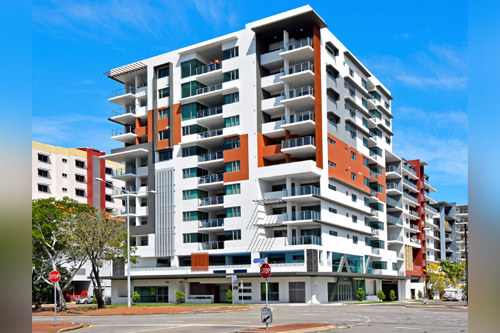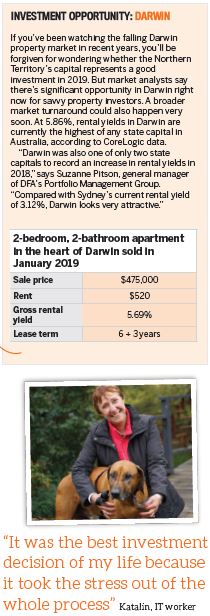
Investing in property is an exercise inherently filled with risk. The market undergoes shifts, tenants can be difficult to find, and the right location is absolutely crucial to guarantee returns. So whether you’re a long-time and experienced investor, or are simply wanting to take your first steps into the market, it makes sense to minimise risk as much as possible.
But what’s the best approach to take? It varies from investor to investor; some love the research and fact-finding aspects of investment just as much as the potential returns. However, there are simpler paths, too. Defence housing is emerging as an increasingly popular choice for investors – with locations close to amenities, reliable tenants and ongoing support, it’s a lower-risk option that allows investors the chance to explore opportunities they might not have previously considered.
Defence Housing Australia
Currently, Defence Housing Australia (DHA) is one of the largest property managers in Australia. With approximately 18,000 properties Australia-wide, the organisation has oversight of a portfolio valued at around $11bn.
Each year DHA sells a portion of its portfolio to investors who then lease the properties back to DHA on a long-term basis. These properties are then used to house Defence members and their families across the country.

“The revenue we generate from this activity is our primary source of capital,” says Pitson. “It funds our operations and enables us to provide quality housing to Defence personnel. From an investor perspective, it resolves the common issue of finding a tenant to live in your investment property.”
There are other benefits too, Pitson says. All of the day-to-day aspects of managing your investment are also taken care of, which includes coordinating and paying for most non-structural repairs and maintenance. Additionally, leases are long-term, and in most circumstances rent is guaranteed, even if the property isn’t occupied. Rent is also paid in advance, on the first day of each month.
While the investor retains a number of responsibilities and will need to pay some incidental expenses, it’s an ideal situation for those looking to be more hands-off with their investment properties.
“A DHA property investment suits those looking for a longterm hold strategy without maintenance or tenant hassles,” says Pitson. “Our long-term leases are usually nine or 12 years, and an income stream generated by our reliable rent offers a sense of certainty that isn’t afforded by other property investment opportunities.”
Who can invest?
It’s a common misconception that you have to be a Defence member to buy a DHA investment property. But this isn’t the case, Pitson says.
“Although many Defence members have invested in DHA, the majority of our investors have no connection to Defence at all. Our investors come from a variety of backgrounds and life stages; however, they all have one thing in common: they want to generate wealth and secure their financial future.”
Pitson points to the example of Katalin, a Sydney-based IT worker.
“When Katalin first came to us, she’d already purchased one investment property privately,” Pitson says. “It had yielded some results, but there had also been a number of mistakes along the way that she wanted to avoid in future.”
Katalin opted to go through DHA for future investment purchases, after discovering how the process worked. Several years later, she now owns three investment properties through DHA and has been impressed with the subsequent results. All have seen growth in rents and property values, while her involvement in the day-to-day oversight remains minimal.
“It was the best investment decision of my life because it took the stress out of the whole process,” says Katalin.

DHA properties are located in most capital cities and major regional centres throughout Australia – largely, wherever the Defence Force has a presence. The properties available for sale are also integrated into communities, rather than being located on Defence bases, Pitson says. As a result, they have the advantage of being located within close proximity to schools, shops, transport and other amenities.
“Right now we have some great investment opportunities in standout regions that are bucking Sydney and Melbourne trends,” says Pitson. “Some of the most notable spots include Canberra, Southeast Queensland, the Hunter Region and Darwin.”
What happens after the lease is up?
At the end of the lease agreement, the property is returned to the investor. They may also be entitled to an end-of-lease make-good.
“This means you can move in, rent privately or sell as you wish,” says Pitson. “Essentially, it means that DHA will ensure all appliances are in good working order and the property is professionally cleaned throughout. The dwelling, grounds and landscaping will also be refreshed to neat and tidy condition if necessary.”
To account for wear and tear, if the lease term has been six years or longer, DHA will paint the property internally. If the lease term has been nine years or more, DHA will also recarpet and paint the external structure, unless this is the responsibility of a body corporate.
Want to learn more?
Properties are released for sale every second Tuesday and are available for preview on the DHA website for nine days before being sold via a ballot process.
The first step is to register your interest at dha.gov.au.
A sales consultant will be allocated to assist with the buying process and help explain the lease.
Once registered, you’ll also receive DHA’s fortnightly property release email so you can be among the first to know what opportunities DHA has available.
